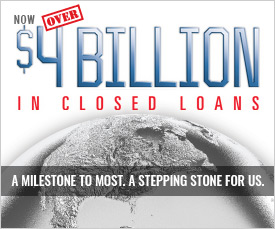
When someone is in need of a loan to finance a commercial real estate acquisition or project, they typically turn to a traditional lender such as a bank. Not every opportunity, however, is going to be the best fit for a bank. In these cases, a direct private lender is often called in as an “alternative,” for when a traditional lender does not work out.
In situations where a traditional lender is unlikely to approve an application, a borrower may waste months of time waiting to hear back from, and ultimately be rejected by, a traditional lender. In these cases, a direct private lender should not be seen as an alternative, but as the first place to go.
“Direct private lenders should be the first stop for many borrowers who are in situations that traditional lenders may find atypical,” said Kevin Wolfer, CEO of Kenney Funding. “Where banks see only risk, we work closely with the borrower to identify opportunity.”
Which situations call for a direct private lender?
There are four key situations for which you’re more likely to receive funding from a direct private lender:
1. Time-sensitive loans
When you go to a traditional bank for a loan, you’ll need to wait weeks or months for an approval. If you need a loan much sooner— say, 10 days from when you apply for one—a traditional lender will be unable to make those tight deadlines. Direct private lenders can make that happen, shortening the application and review process to just a few days. Because private lenders are direct, the application process with a direct private lender simply takes less time to review.
2. International opportunities
Traditional banks almost always hesitate to fund loans for international opportunities. Factors including unfamiliar environmental regulations and differences in international financial laws often discourage traditional lenders from approving international loans. Select direct private lenders, on the other hand, can be well-acquainted with the landscape in foreign countries, minimizing the risk involved in approving certain international loans.
3. Raw land
Banks are almost always unwilling to lend on raw land. Anything can happen when a property is empty, from construction delays to permitting issues with the local, county, or state government. To a bank, these unknowns are too risky; if a project does not go as planned, they may not recoup their losses. A direct private lender, however, has the flexibility to share in the borrower’s vision.
4. Less-than-perfect credit
Applying for a loan with a traditional lender when you have a low credit score is a surefire way to have your application denied. Borrowers with poor credit often fare better with direct private lenders, who will consider all the merits of a deal instead of just credit.
When lending money to borrowers with bad credit, rest assured that direct private lenders are assessing the value of the property, and not taking past mistakes or dealings gone wrong into account. Direct private lenders may be especially likely to approve loans if the property is of sufficient equity over and above the value of the loan. Other factors that can persuade a direct private lender to approve a low-credit loan include a financial history with few to no bankruptcies, charge-offs, foreclosures, or collections.
Don’t be afraid to start with a private lender
Direct private lenders, despite their reputation as alternatives, can make your borrowing process far easier in many situations. Kennedy Funding is especially well-versed in working with clients whom traditional lenders would all but certainly turn away. Contact us today to get the ball rolling on securing your next big loan.







